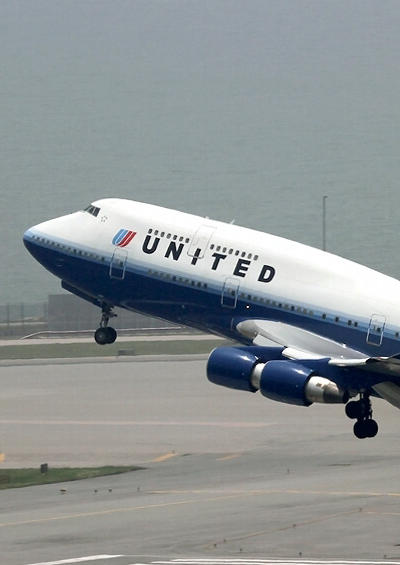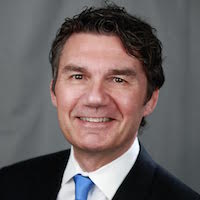United Airlines and Borussia Dortmund: No Mere Accidents
Two tales, same story of corporate abuse and consumerism.
April 15, 2017

This week’s brutal removal of a passenger from a United Airlines plane so that a commuting United Airlines employee could fill his seat on the overbooked flight sent shock waves across the world.
Crassness reigns
While this incident of crass corporate abuse ranks among the most stunning videos recorded yet, the incident is far from being an aberration.
Corporate power, especially but not only, in the United States has grown by leaps and bounds over the last few decades. Endless and largely unimpeded corporate mergers across all industries have created ever-larger corporate empires with unprecedented powers.
In the United States, it wasn’t just Republican, but also Democratic Administrations that have for the most part ignored antitrust legislation that is to protect consumers against such oligopolies.
Such mergers are always defended by corporate chieftains as necessary to create greater efficiencies and to exploit so-called synergies.
Of course, economic theory – and practice – demonstrate conclusively that the resulting lack of competition grants corporations consumer-unfriendly pricing power and the ability to control a shrinking universe of enterprises.
Political collusion
The political elite has stood by silently because their own personal fortunes depend on campaign contributions from the conquerors of the free market.
Naturally, the decline in competition has led to an increase of often extortionary behavior by these corporate empires. C-suite selfishness increasingly reigns supreme.
And the arrogance – and brutality – that lies beneath the thin veneer of “serving the customer” trickles all the way down to frontline employees, such as the thugs that “escorted” the passenger of the United Airlines flight.
Time to take stock
Not a year passes without airline executives further cutting “services” to their economy passengers. Bullying, lack of legroom and additional pricing for any ancillary services are just some of the unsavory practices.
But other oligopolies — from phone companies to pharmaceutical firms or to the financial services industry — are not treating their customers any better.
As the UAL incident shows, the concentration of corporate power has had a devastating effect on corporate culture that emanates from the top. Corporate leaders acted with near-impunity in the build-up of the Great Recession and they have not been stopped since.
This impunity has had an important signal-effect throughout the organizations. Lower-level employees feel the same sense of entitlement as long as they serve the “greater good” of the corporation.
Evidently, there is also a rising sense of the corporation being seen on the inside as a military unit. This explains their increasing appetite for intolerable treatment of their customers.
Indeed, in the United States, the slow descent into corporate dictatorship has also been facilitated by the overall militarization of the country’s police forces.
This is the everyday result of a never-ending number of external and internal wars as well as in reaction to terrorist attacks.
Worse, in a completely mistaken sense of “duty,” public law enforcement all too willingly lends itself to private corporations in executing private sector “martial law”, as airport security did in case of the United Airlines customer.
An ocean away
Just two days after the United Airlines incident, there was another striking event that took place on the other side of the Atlantic. The team bus of Borussia Dortmund, one of Europe’s most popular soccer teams, was attacked with explosives.
The team was on its way to the stadium where Dortmund was to play France’s AS Monaco in a quarter final game of the European Champions League.
The power of the explosives, which apparently had military-style triggers, was so strong that they propelled shrapnel as far as 100 meters.
By sheer luck, only one Dortmund player was seriously injured. Only those who have been through an experience like this can comprehend the lasting effects on the psyche of the players and coaches on that bus.
Playing with emotions
And yet, within 45 minutes of the attack, the CEOs of both teams, the European soccer association (UEFA) and the German police decided that the game would be postponed by a mere 22 hours. Nobody seemed to have asked the players or the coaches about their opinion.
The “bosses” came out to say that the packed calendar of games at the peak of the season required such quick rescheduling.
Besides, the officials proudly announced, giving more time to the affected players would be equivalent to giving in to terrorists. Of course, the political class all too eagerly echoed these words. The Dortmund players were elevated to heroes in society’s struggle against terrorism.
Except, the players did not see themselves as heroes but rather as pawns or “puppets,” as one Dortmund player put it. Another soft-spoken, eloquent player of Borussia, Nuri Sahin, said after the game:
Last night, I did not realize what had happened. When I got home and my wife and son were waiting at the door, I felt how lucky we had been. I know, we make a lot of money, we live a privileged life but we are human beings and there is so much more than soccer in this world.
In response to a question on whether playing the game less than 24 hours after the attack would show defiance to the terrorists, he said: “To set a sign? I don’t know, but that is beyond my human comprehension.”
The show must go on
Corporate interests, once again, trumped humanity. Obligations from TV contracts must be met. When money talks, nothing else matters. In this case, the employees were the victims of corporate abuse. This, too, is not an aberration.
But the cases of United Airlines and Borussia Dortmund have much in common. Capitalism is at its worst when corporations or corporate organizations can have monopoly power. Corporate “leaders” become oppressors. Their victims are at times consumers and at times their employees, and at other times both groups.
Look in the mirror
This is all possible, however, because of our insatiable hunger to consume. The decline of Western democracy goes together with the unstoppable rise of consumerism.
Consumers (in other words, all of us) are often the victims of large corporations, but because of our own behavior, we are also their greatest enablers.
An unstoppable craving for more of anything traps us. More things, more TV sports, more reality shows, more, more, more.
We are the real drivers behind corporate greed because of our own greed for instant gratification. This does not justify or excuse corporate abuse, but it goes a long way to explain its existence.
Takeaways
As the UAL incident shows, the concentration of corporate power has had a devastating effect on corporate culture.
Corporate “leaders” become oppressors. Their victims are at times consumers and at times their employees.
Consumers, while victims of large corporations, are also their greatest enablers.
We are the real drivers behind corporate greed because of our own greed for instant gratification.
Read previous
Global Diplomacy
A Trump Doctrine?
April 12, 2017
